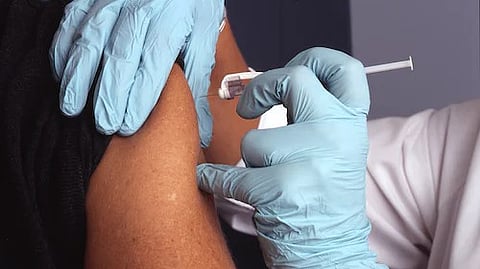
- Home
- न्यूजग्राम
- NewsGram USA
- India
- World
- Politics
- Entertainment
- Culture
- Lifestyle
- Economy
- Sports
- Sp. Coverage
- Misc.
- NewsGram Exclusive
- Jobs / Internships

Osteoarthritis is the degeneration of cartilage and other tissues in joints and is the most common form of arthritis. Current osteoarthritis treatment manages symptoms rather than addressing the underlying disease.
It is a long-term and progressive condition which affects people's mobility and has historically had no cure.
Often described as a 'wear and tear' condition, factors such as ageing, obesity, injury and family history contribute to the progression of osteoarthritis.
The study by researchers at the University of Adelaide showed the condition may be treatable and reversible.
They found that the treatment with fibroblast growth factor 18 (FGF18) stimulated Gremlin 1 cells -- the new stem cells -- in joint cartilage in mice can lead to significant recovery of cartilage thickness and reduced osteoarthritis.
Gremlin 1 cells present opportunities for cartilage regeneration and their discovery will have relevance to other forms of cartilage injury and disease, which are notoriously challenging to repair and treat. It challenges the categorisation of osteoarthritis as wear and tear.
"The findings of our study reimagine osteoarthritis not as a 'wear and tear' condition but as an active, and pharmaceutically reversible loss of critical articular cartilage stem cells," said Dr Jia Ng from the Adelaide Medical School.
"With this new information, we are now able to explore pharmaceutical options to directly target the stem cell population that is responsible for the development of articular cartilage and progression of osteoarthritis," Ng said.
While the discovery, published in the journal Nature Communications, is limited to animal models, Dr Ng said there are genetic similarities to human samples, and human trials are ongoing.
"We look forward to the outcome of these trials and to contribute to the better understanding of a pharmaceutical mechanism to treat osteoarthritis," she said. IANS/KB
